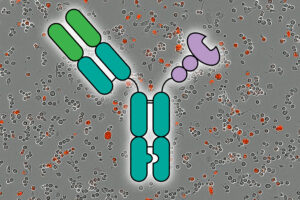
MINNEAPOLIS – A recent study published in the September 3, 2025, issue of Neurology®, the medical journal of the American Academy of Neurology, suggests that some sugar substitutes may have unforeseen consequences for long-term brain health. The research tracked 12,772 adults with an average age of 52 and found that those consuming the highest amounts of certain artificial sweeteners experienced a faster decline in cognitive abilities compared to those with lower consumption levels.
The study focused on seven artificial sweeteners commonly found in ultra-processed foods such as flavored water, soda, energy drinks, yogurt, and low-calorie desserts. These include aspartame, saccharin, acesulfame-K, erythritol, xylitol, sorbitol, and tagatose. Notably, the decline in cognitive skills was more pronounced among individuals with diabetes.
Understanding the Study’s Findings
Participants in the study were monitored over an average of eight years, during which they completed dietary questionnaires and cognitive tests. The tests assessed various cognitive functions, including verbal fluency, working memory, word recall, and processing speed. The results indicated that those in the highest consumption group of artificial sweeteners showed a 62% faster decline in overall thinking and memory skills than those in the lowest group. This decline equated to approximately 1.6 years of aging.
Dr. Claudia Kimie Suemoto, the study’s lead author from the University of São Paulo in Brazil, emphasized the potential risks associated with these sweeteners. “Low- and no-calorie sweeteners are often seen as a healthy alternative to sugar; however, our findings suggest certain sweeteners may have negative effects on brain health over time,” she stated.
Age and Health Factors Influence Outcomes
The study revealed that the link between artificial sweetener consumption and cognitive decline was significant in individuals under the age of 60 but not in those older. Furthermore, the association was stronger in participants with diabetes, highlighting the need for further research to explore these connections.
While the study identified correlations, it did not establish a direct causal relationship between sweeteners and cognitive decline. This distinction is crucial for interpreting the findings and considering future dietary guidelines.
Implications for Public Health
The potential implications of these findings are significant, particularly as artificial sweeteners are widely used as sugar substitutes in many diets. The study’s outcomes suggest that individuals, especially those with diabetes or under 60, may need to reconsider their consumption of these sweeteners.
Dr. Suemoto pointed out the necessity for additional research to confirm these findings and to investigate alternative sweeteners. “More research is needed to confirm our findings and to investigate if other refined sugar alternatives, such as applesauce, honey, maple syrup, or coconut sugar, may be effective alternatives,” she added.
Limitations and Future Research
One limitation of the study was its reliance on self-reported dietary information, which can be subject to inaccuracies. Additionally, not all artificial sweeteners were included in the study, leaving room for further exploration of other substances.
The research was supported by the Brazilian Ministry of Health, the Ministry of Science, Technology, and Innovation, and the National Council for Scientific and Technological Development. These findings contribute to a growing body of evidence on the potential health impacts of artificial sweeteners, urging a reevaluation of their role in our diets.
Connecting with the Broader Neurological Community
For those interested in learning more about brain health, the American Academy of Neurology offers resources through BrainandLife.org. This platform provides access to a magazine, podcast, and books that connect patients, caregivers, and anyone interested in brain health with trusted information from leading experts.
The American Academy of Neurology, the world’s largest association of neurologists and neuroscience professionals, continues to be a leading voice in brain health. With over 40,000 members, the AAN is dedicated to advancing neurology research and providing the latest news and insights to patients, caregivers, and professionals.
Explore more about neurological diseases and brain health by visiting AAN.com or following the AAN on social media platforms such as Facebook, X, Instagram, LinkedIn, and YouTube.





